Watch Our Startup Pitch Showcase Featuring Diverse and Underrepresented Founders in LA
Annie Burford is dot.LA's director of events. She's an event marketing pro with over ten years of experience producing innovative corporate events, activations and summits for tech startups to Fortune 500 companies. Annie has produced over 200 programs in Los Angeles, San Francisco and New York City working most recently for a China-based investment bank heading the CEC Capital Tech & Media Summit, formally the Siemer Summit.
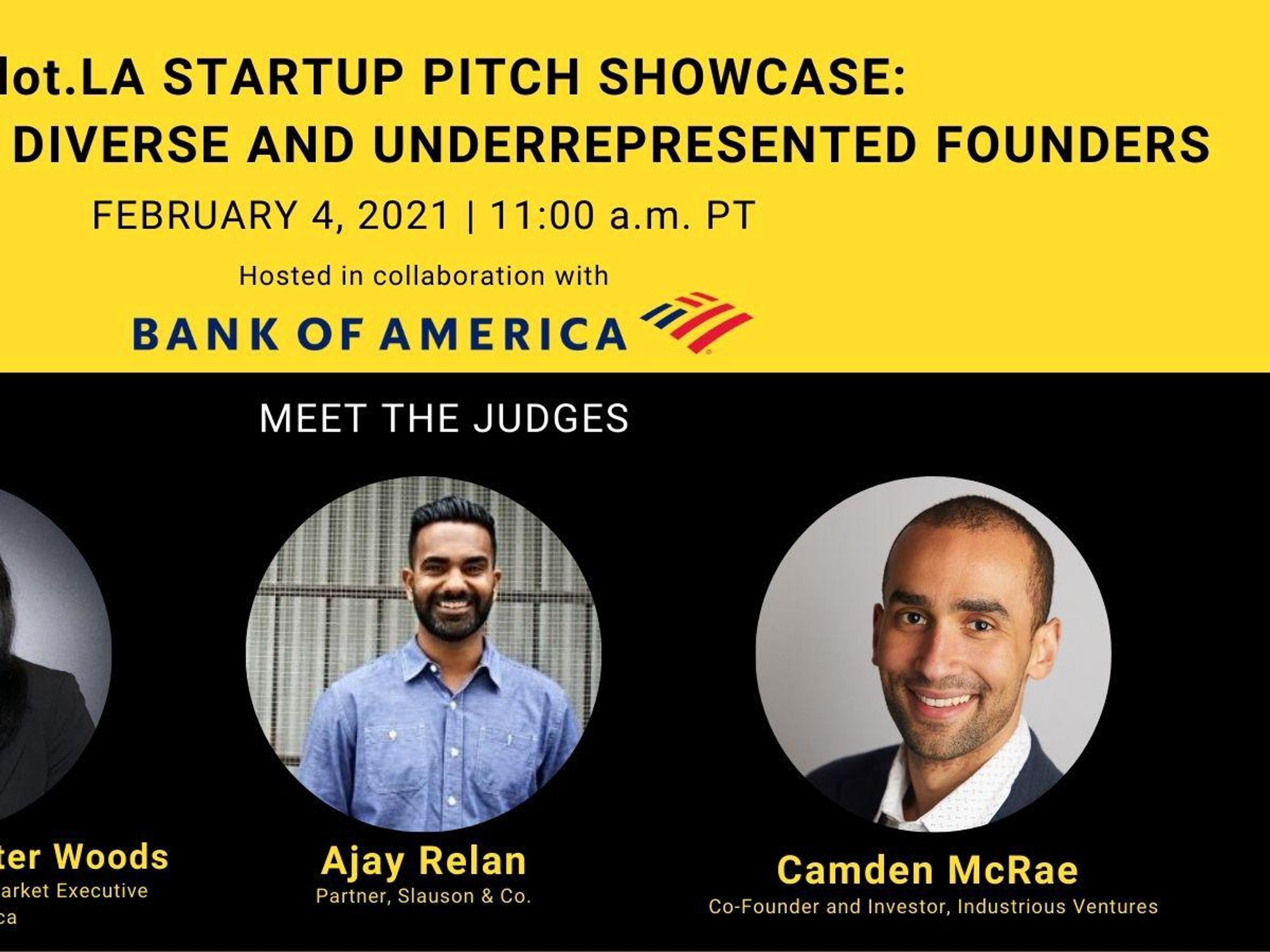

Unarmed
When Tony Rice II was 17, he was pulled over by the police, who pointed a gun at his head. He said his first reaction was to look over at his younger brother in the passenger's seat, terrified.
Years later, he was pulled over again and this time the officer asked him if he was on parole.
"Unfortunately, situations like this happen too often to people that look like me," Rice, who is Black, said. "And a part of me thinks I'm lucky because others weren't."
Rice told his story about what led him to found a company that developed a platform for government agencies to file and track complaints or compliments about police officers during dot.LA's most recent Startup Pitch Showcase Thursday that highlighted startups that have diverse and underrepresented leaders. Rice was joined by executives from three other startups, Kilo, Gleam Network and StartupStarter.
The startups were offered advice from judges Redonna Carpenter Woods, senior vice president and market executive at Bank of America, Ajay Relan, partner at Slauson & Co. and Camden McRae, co-founder and investor at Industrious Ventures about how to develop their pitch in the hope of getting funding. But the stars of the show was the startups themselves.
Rice said government entities, including police oversight agencies, can use the Unarmed platform on their websites for citizens to file complaints or compliments about police officers. The cases then enter into a dashboard where officials manage the case. Citizens are also able to track their case through the system.
"This is the real deal not just for people that look like you and I, but this is for the safety and wellness for everyone," Carpenter Woods said.
Rice is seeking $500,000 in funding to hire full-time employees.
Kilo
Amanda Bender, founder of Kilo, said it was her experience as a therapist and her relationships with male friends that led her to develop an app for men to track their emotional fitness. While she said the market is flooded with apps that focus on physical fitness, there is a lack of apps focused on mental health for men that speak directly to them.
"We've specifically designed Kilo for its core audience," Bender said. "We've created an app to transform men into happier and healthier humans."
The app, which is still in development, uses nine markers, like sleep, motivation, mood, workout and libido, where a user rates each marker to increase their own self-awareness and to receive personalized insights.
The company is seeking $600,000 in funding to hire full-time staff.
The judges were interested in how Kilo would market to men who might not be open to improving their mental health.
GLEAM Network
GLEAM Network is a nonprofit, volunteer organization that mentors and offers leadership training to underserved communities in the restaurant and foodservice industry.
Founded nine months ago by Sanjiv Razdan, former COO of Sweetgreen, GLEAM has ambitions to scale quickly and grow globally.
"The demand for our services is even greater than we anticipated and what's stopping us from global growth is funding," GLEAM's Rosemary Staltare said.
GLEAM is seeking $150,000 to fund a new technology platform that will help match mentors with mentees. With that money, it hopes to expand the number of mentees it works with to 500.
StartupStarter
Jose Barrera, founder and CEO of StartupStarter, sees opportunity with his social network for startups. All businesses are now internet businesses, he said.
"This is true whether you're trying to launch a mining company or a high-tech startup, the same principles apply that is you have to attract customers, convert customers, pay your employees, basically you have to open your computer, enter the grid," Barerra added.
The network has different membership levels for founders, service providers and investors.
Its goal is to democratize entrepreneurship through efficiency and convenience.
StartupStarter has begun working with startups because there is a single model, however Barrera also sees the business expanding to other verticals like restaurants because every business needs to know how to build a better website, for example.
Barrera is seeking $1.3 million in funding to develop a mobile app to expand to millions of users and to hire marketing staff.
About the Companies:
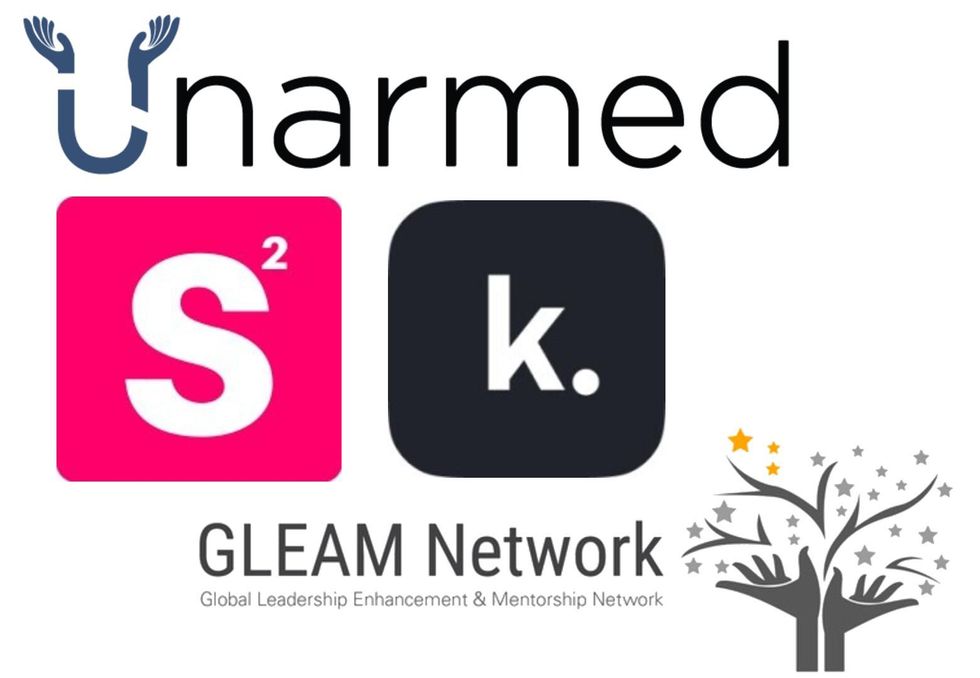
Unarmed is a technology company serving the public sector. Our mission is to create a safer world for all civilians. Our vision is to be the global leader in civilian-focused solutions. Our subscription-based, software as a service (SaaS) platform consists of an online portal where civilians can prepare, file and track their compliments and complaints ("cases") about law enforcement. Those cases then seamlessly flow into a dashboard, where oversight officials are able to manage the case until it is closed.
StartupStarter is a professional network for startups and the communities that support them. We are a collective of founders, investors, subject matter experts and service providers on a mission to make launching and scaling a successful business accessible to anyone. We're united by the idea that every business is now an internet business, and we strive to give the most user-centric and efficient experience by providing our members with the innovative resources, products, services or connections that best meet their needs.
GLEAM Network is a volunteer network whose purpose is to provide mentorship and leadership development to the underserved and underrepresented community in the restaurant and foodservice industry. With a bold vision to be a truly global and the most effective mentoring network in the industry, our organization provides low / no cost access to all programs, including executive leadership training, 1:1 mentoring and biweekly learning circles helmed by the industry's most inspiring leaders. At GLEAM we believe that everyone deserves the opportunity to learn from engaging with others and to build expertise in leading effectively.
Kilo is an app for men who want to be their best selves, an app to track emotional fitness with powerful data like quality of mood, energy, libido, relationships and sleep on a daily basis to unlock actionable insights and cultivate growth in order to improve happiness and mental health. Building better hu[man]s.
About the Judges:
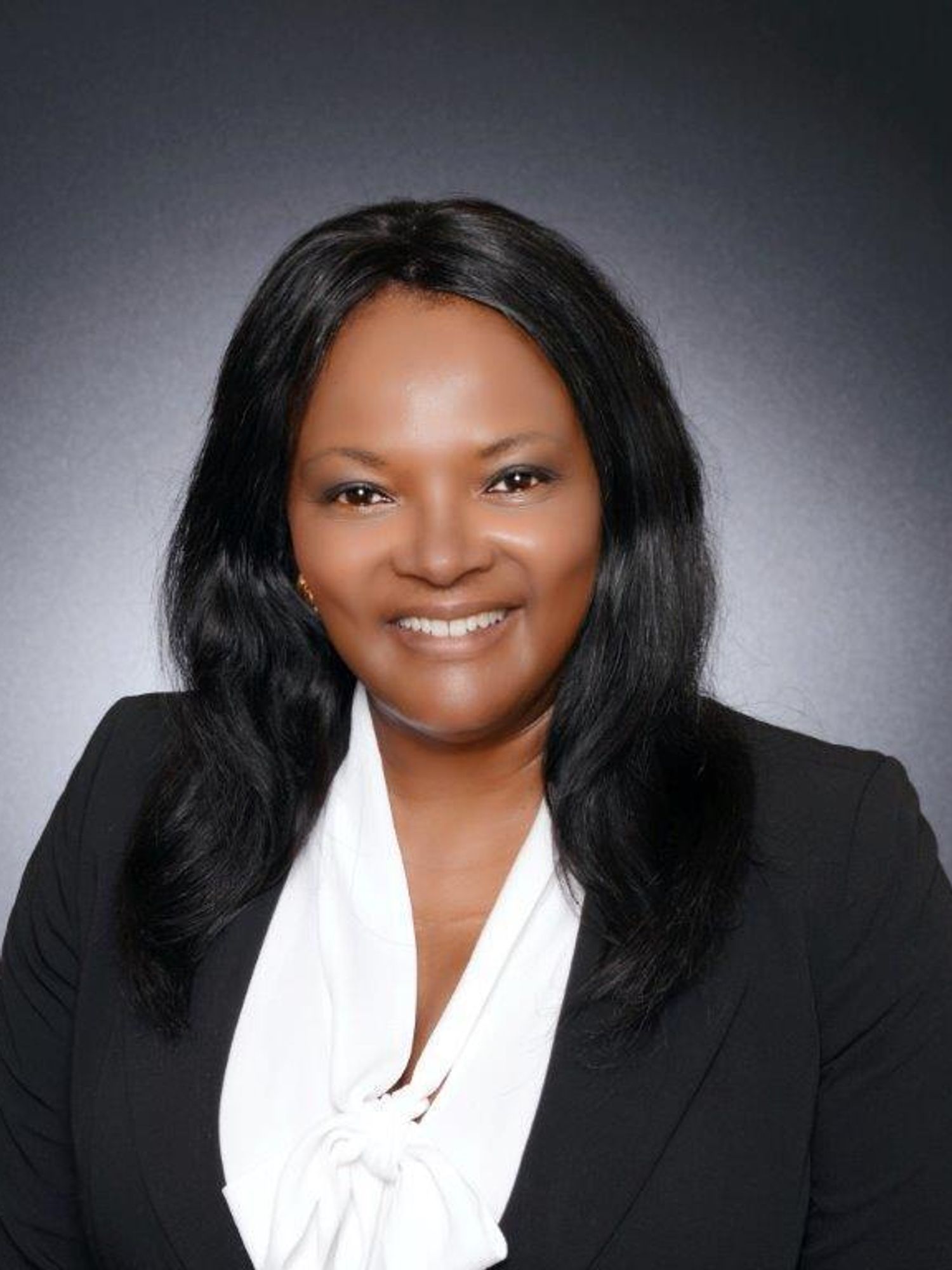
Redonna Carpenter Woods, senior vice president and market executive at Bank of America
Redonna Carpenter Woods, Senior Vice President & Market Executive at Bank of America
As the SVP & market executive for the L.A. coastal market of commercial business banking, Redonna leads a team of financial professionals who deliver strategic, integrated financial guidance and solutions to companies with $5 million to $50 million in annual revenue.
Redonna has enjoyed a career in banking that spans over 35 years. She joined Bank of America Merrill Lynch in 2011. Prior to that time she held key leadership positions in SBA Lending, Consumer and Commercial Banking.
Redonna is the Executive Sponsor for Greater LA LEAD for Women and Multicultural Women Ready to Lead. She is also a member of the Black Professional Group (BPG), Power of 10, and the Black Executive Leadership Team (BELT). Redonna is an active volunteer in her community and has served in many leadership roles and as a member of several nonprofit boards. A few of these organizations include: The Wellness Community – Valley/Ventura, Moorpark College Foundation, Conejo/Las Virgeness Future Foundation, and United Way of Ventura County, Big Brother/Big Sister - Ventura County and YMCA, Thousand Oaks/Conejo Valley. Redonna is a current board member for Discovery Cube, LA and Greater Conejo Valley Chamber of Commerce.
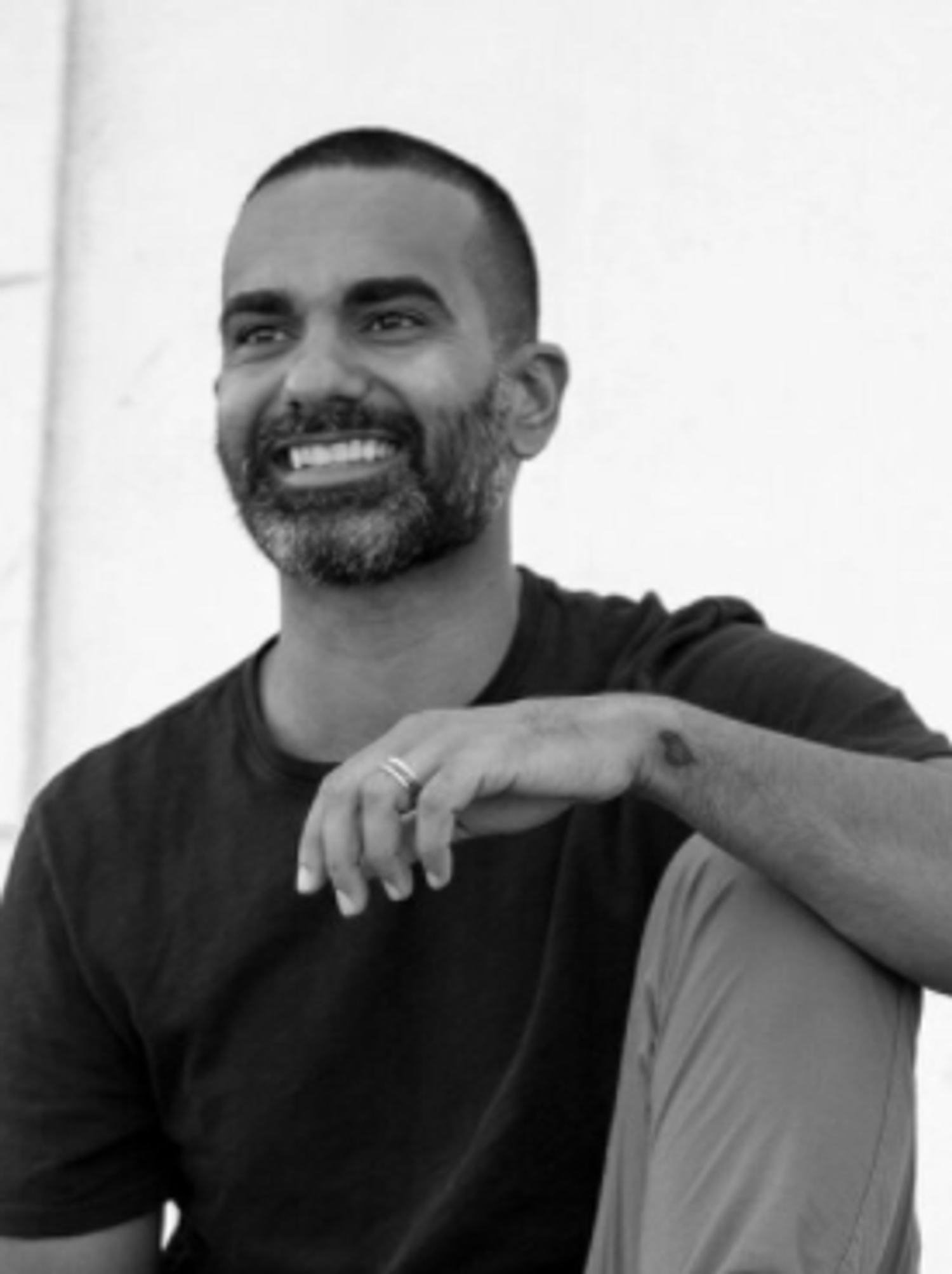
Ajay Relan, partner at Slauson & Co.
Ajay Relan, Partner at Slauson & Co.
Ajay is an investor, entrepreneur, and community builder. Prior to Slauson & Co., Ajay was a founding partner at Queensbridge Venture Partners. With a keen focus on brand building and storytelling, Ajay's passion lies in identifying trends and engineering culturally relevant brands.
A lifelong Angeleno, Ajay has established a business portfolio grounded in community. His most recent collaboration, Hilltop Coffee + Kitchen, has become a staple, facilitating productivity and collaboration in diverse neighborhoods across Los Angeles.
In 2012, Ajay founded #HashtagLunchbag, a nonprofit program who's supporting feeding 150-plus cities around the globe. He went on to establish the Living Through Giving Foundation, a platform empowering the creation of programs engaging diverse groups of people to contribute to various causes in their local communities.
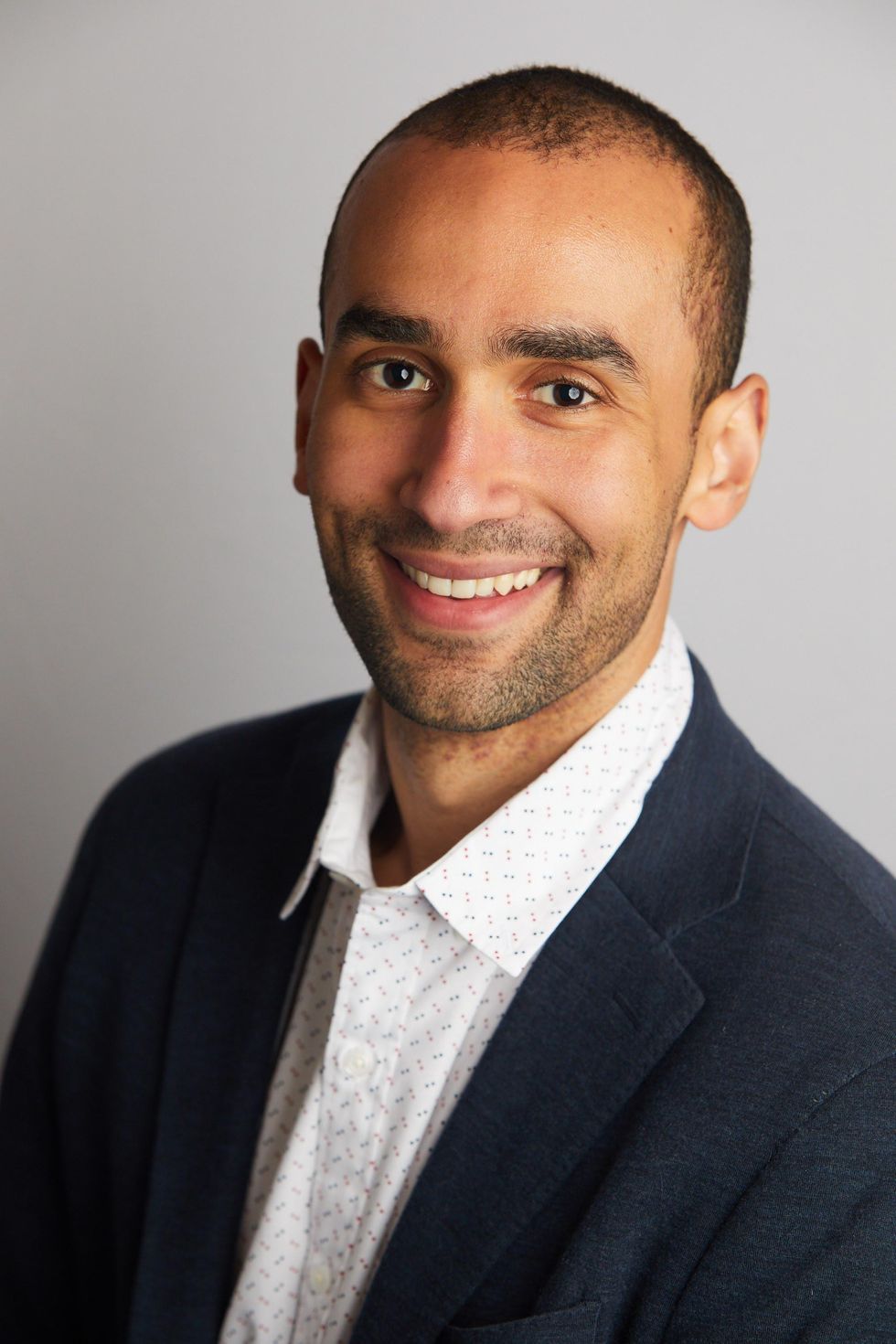
Camden McRae , co-founder and investor at Industrious Ventures
Camden McRae, Co-Founder and Investor at Industrious Ventures
Camden McRae is a co-founder and investor at Industrious Ventures, an early-stage fund focused on industry transformation. He currently serves on the Executive Committee for BLCK VC, as well as the Stanford Angels & Entrepreneurs of Southern California. Camden co-founded a company that led him to become a Fellow at Lightspeed Venture Partners and he later worked as a Fellow at Alchemist Accelerator. Most recently, Camden was a principal at Noname Ventures. He received a BA in psychology from Harvard University and a JD from Stanford Law School.
- Our Startup Pitch Showcase Events - dot.LA ›
- Watch: Our Startup Pitch Showcase on Real Estate Tech - dot.LA ›
- Unarmed CEO Tony Rice II Developed His Startup - dot.LA ›
- Urban Tech LA To Host 4th Annual Diversity Conference - dot.LA ›
- Event: StartupBrite Pitch Event - dot.LA ›
- Event: StartupBrite Online Pitching Event - dot.LA ›
- Marker Learning Makes Learning Assessments More Accessible - dot.LA ›
Annie Burford is dot.LA's director of events. She's an event marketing pro with over ten years of experience producing innovative corporate events, activations and summits for tech startups to Fortune 500 companies. Annie has produced over 200 programs in Los Angeles, San Francisco and New York City working most recently for a China-based investment bank heading the CEC Capital Tech & Media Summit, formally the Siemer Summit.
Favot is an award-winning journalist and adjunct instructor at USC's Annenberg School for Communication and Journalism. She previously was an investigative and data reporter at national education news site The 74 and local news site LA School Report. She's also worked at the Los Angeles Daily News. She was a Livingston Award finalist in 2011 and holds a Master's degree in journalism from Boston University and BA from the University of Windsor in Ontario, Canada.



 Image Source: Valar Atomics
Image Source: Valar Atomics Image Source: Waymo
Image Source: Waymo Image Source: Apple
Image Source: Apple
